by Akinyele Umoja
Haitian practitioners of Vodou, an integral part of the nation's culture, have been set upon and lynched by evangelical protestants linked to the U.S. Right. “The promotion of a religious civil war among Haitians is part and partial of the colonial counter-insurgency 'play book.'”
Hating the Root:
Attacks on Vodou in Haiti
by Akinyele Umoja
“The lynchings were mostly conducted by machete-wielding thugs.”
Members of the Vodou community in Haiti have been lynched in recent weeks. Vodou practitioners are blamed by the perpetrators of lynching for the spread of cholera in Haiti. Every reliable source has linked the cause of the cholera epidemic with unsanitary conditions of Nepalese soldiers that are part of the MINUSTAH, the United Nations (UN) occupation force in the Caribbean nation. This violation of religious freedom is part of a concerted attack on the national culture and identity of the Haitian people. It also serves to divide Haitian people at a time when unity is most necessary to ensure their interests as they rebuild their country in the face of disaster, disease and foreign intervention.
It has been reported that 45 members of Vodou communities, primarily priests (both male and female), were lynched. The majority of the lynching has taken place in the area of Jeremie in the southwest peninsula of the country. The lynchings were mostly conducted by machete-wielding thugs. Many of these murders were witnessed by Haitian police and other “justice” officials, but no one was arrested or prosecuted for the crimes. After many complaints particularly by members of the Vodou faith, five were arrested; three of them were later released reportedly for “political reasons” and two were still being held. UN officials first denied these occurrences, but have recently denounced the acts of violence against Vodou priests.
What is Haitian Vodou? What is the basis of these acts against the Haitian Vodou community? What response should the supporters of human rights have on these occurrences?
Origins and Significance of Haitian Vodou
Haitian Vodou is a religion of African origins. The term Vodou originates among the Ewe-speaking peoples of Togo and Ghana. Vudu is the name of the indigenous religion of the Ewe. The Fon-speaking people of Benin have a related term for their indigenous faith system called Vodun. Captive Africans from what is now Togo and Benin made up a significant portion of the enslaved population of the French colony of Saint Domingue in the 17th and 18th centuries. The largest numbers of Africans enslaved in Saint Domingue came from West-central Africa (now the Republic of Congo, Democratic Republic of Congo, and Angola). Africans from West Africa and West-central Africa created Vodou combining the spiritual systems from their various homelands and constructing rituals based upon their existence in slavery.
The religions of African origin transformed under the one umbrella called Vodou in Haiti became a vehicle of solidarity and resistance for the enslaved African majority. Several fighters against slavery were Vodou priests. The enslaved African rebel Mackandal is believed to have initiated the Vodou rite called Petro in the resistance fight in the 1750s. What is now known as the Haitian revolution was initiated at a Vodou ceremony after an assembly of enslaved Africans and fugitives organized to fight to eliminate slavery. This assembly and ceremony is known in history as Bois-Caiman, after the place of the gathering.
“What is now known as the Haitian revolution was initiated at a Vodou ceremony after an assembly of enslaved Africans and fugitives organized to fight to eliminate slavery.”
Haitian Vodou served as a matrix to preserve African cultural reality and memory in the western hemisphere. The French slave-holders feared Vodou and established “slave” codes designed to prevent its practice. Similar to other religions of African origin in the western hemisphere and colonized Africa, Vodou was demonized by colonial officials, pro-slavery Christian clergy and slaveholding plantation owners as a means of psychological warfare and intentionally attempting to disarm Africans of their tools of solidarity and resistance. To some extent, the French colonizers feared the mystical power of Vodou rituals and its ability to inspire and motivate enslaved Africans to rebel. The French were unsuccessful in stamping out resistance and Vodou in Haiti. Vodou was an important part of the popular resistance that defeated the French and established Haiti as an independent republic in 1804. Some of the leaders of the Haitian revolution were Catholic, while much of the masses of the resistance were African-born and worshipped the faiths based on their African heritage.
The 1806 assassination of Jean Jacques Dessalines, the first head of state of independent Haiti, led to the ascension of a series of rulers who identified with Catholicism and French culture. Many of these leaders were the descendants of French settlers and enslaved African women. Many Haitians of mixed Franco/African heritage greatly identified with the culture, religion, and civilization of France and rejected the African roots of their country. While the Haitian Constitution guaranteed the freedom of religion, Vodou, was repressed. The new Haitian elite established its power and like the French before them feared the religions of African origin and its potential to mobilize the grassroots Haitians, particularly the peasantry. Vodou remained a popular religion in spite of the repression of the state and the Francophile elements of the Haitian elite. Haitian dictator Francois “Papa Doc” Duvalier rose to power countering the power of the Francophile elite and striking fear in the masses utilizing the Haitian military and the militia he created, Volunteers for National Security (VSN), better known as the “Tonton Macoutes” as a tool of repression. Duvalier also established relationships with Vodou priests and Christian clergy as well as other sectors of society to maintain his power in Haiti from 1957 to 1971. His son Jean Claude Duvalier assumed power in Haiti after his demise.
“The new Haitian elite established its power and like the French before them feared the religions of African origin and its potential to mobilize the grassroots Haitians, particularly the peasantry.”
A significant opening for the freedom of religion in Haiti occurred with the rise of a popular movement against the Duvalier dictatorship leading to the election of Jean Bertrand Aristide in 1990 and 2000 and the ascension of the pro-democracy and human rights Lavalas movement. Like members of Christian liberation oriented congregations, grassroots Vodou communities were associated with the resistance to the Duvalier regime. According to Vodou priestess and grassroots activist Euvonie Auguste, thousands of participants of Vodou communities were target and killed by the Duvalier regime and its paramilitary forces in its last days.
Aristide was a Catholic priest who rose to leadership of the pro-democracy movement as a advocate of liberation theology and the empowerment of the poor in Haitian society. President Aristide gave full official recognition to Vodou in 2003, giving its priests the same legal powers and rights as other clergy in Haiti. This included official recognition of baptisms, marriages and funerals by Vodou priests. The recognition of Vodou was part of an overall campaign of President Aristide and the majority political party, Fanmi Lavalas, to bring democratic reforms to Haiti. These reforms included raising the minimum wage for workers, support for agricultural labor, building schools and clinics, and ensuring rights and social development for women, children and poor Haitians. The Lavalas government promoted the establishment of literacy projects in Vodou temples so that children from families practicing the African-derived religion didn’t have to conceal their faith in Christian-based schools. Some Christian schools had previously denied entrance to students whose families practiced Vodou rituals.
Over half of the Haitian population participates in Vodou rites. The recognition of Vodou ensured they could practice their religion in dignity. This truly reversed the centuries of demonization promoted by French slaveholders and the Francophile Haitian elite. While Aristide is a Christian, his liberation theology sought to bring unity and engage all Haitians in building the country together in mutual respect. Many Haitians are Catholic, but participate and honor the Vodou tradition in the country as part of their heritage and identity.
The Basis of the Current Attacks against Vodou
One sector that was mobilized by the enemies of the reforms bought by President Aristide and the Fanmi Lavalas government of 2000-2004 was fundamentalist Christian groups in Haiti and among the Haitian diaspora. Some of these elements in the United States openly called for an armed counter-revolution to take Haiti by force to suppress Vodou. Some fundamentalist Christians supported by right-wing American church groups and neo-conservatives supported counter-revolutionary destabilization efforts meant to topple the Fanmi Lavalas government and prevent Haiti from celebrating the bicentennial of the Haitian revolution in 2004.
A statement was issued on December 27th 2003 by one Florida based fundamentalist group called for “prayer for the nation of Haiti as a prelude to the taking of Haiti by force” in 2004. These efforts were aligned with the coordinated campaign of CIA-trained death squads trained and mobilized from the Dominican Republic, provocateurs, and disinformation campaigns the Haitian elite towards destabilizing the Fanmi Lavalas democratically elected government.
“Some fundamentalist Christians supported by right-wing American church groups and neo-conservatives supported counter-revolutionary destabilization efforts meant to topple the Fanmi Lavalas government.”
The Bush Administration and their allies in France and Canada provided diplomatic, financial, and technical assistance to the counter-revolutionaries towards the coup of the popular Haitian government on February 29 2004. U.S. Special Forces took Aristide and his family to the Central African Republic against his will. U.S., French and ultimately UN military forces occupied the country and in concert with counter-revolutionaries surgically assassinated, imprisoned, and exiled Lavalas politicians and political activists and dismantled reforms established during Aristide’s administration.
This counter-revolutionary campaign did not end after the U.S. Bush coordinated “kidnapping” of President Aristide and coup the Lavalas government in 2004. The campaign seemed to accelerate after the January 12 2010 earthquake with a signal from one of the American masters of Christian fundamentalism. Conservative theologian Pat Robertson proclaimed the disaster and poverty in Haiti was due to the “pact made with the devil” made by the country during the Haitian revolution. Robertson’s statement clearly labeled Vodou and Bois Caiman as evil and implied this religion of African origin was demonic. Robertson and his cronies have not made a similar condemnation of the horrors of slavery or called for reparations for Haitians for centuries of exploitation by the French and the United States. They choose to attack the faith of the Haitian majority and demonize symbols of revolution and resistance.
Weeks after Robertson’s statement, Haitian Vodou worshippers were physically attacked by evangelical Christians. The Vodou worshippers in Port au Prince were conducting a ritual in honor of the spirits of those who died in the horrific earthquake when they were assaulted by an evangelical group hurling rocks at them at the orders their preacher. Evangelical groups were also charged with monopolizing relief aid to proselytize and intentionally denied material support to Vodou organizations and institutions that serve the spiritual needs of nearly half the Haitian population. And now the latest attacks come after U.S. and UN supported unpopular and undemocratic elections that banned the popular Fanmi Lavalas from participation, the growing awareness that billions of dollars collected for earthquake relief is not being used for that purpose, and thousands of Haitians have protested the UN military occupation of the country by foreign soldiers who brought cholera to Haiti.
“The Vodou worshippers in Port au Prince were conducting a ritual in honor of the spirits of those who died in the horrific earthquake when they were assaulted by an evangelical group hurling rocks at them at the orders their preacher.”
The assaults on Haitian Vodou are allowed by the UN and Haitian authorities because it’s consistent with efforts to destabilize and repress the popular movement for democracy and human rights in Haiti. The promotion of a religious civil war among Haitians is part and partial of the colonial counter-insurgency “play book.” Keep oppressed people fighting each other so they can’t see that their real enemies are stealing the fruit of their labor and the country’s natural resources. Since Vodou is the faith of much of the poor Haitian majority, its suppression also enables foreign commercial interests and the Haitian elite to weaken historic social and cultural institutions of the Haitian people. If the Haitian people are weakened and divided, foreign imperialists and Haitian elites can more effectively forward their initiatives of disaster capitalism in the country after the earthquake and consolidate their power. Their plan is to continue and expand their exploitation of poor Haitian labor in multinational sweet shops.
Malcolm X once said “You can’t hate the root without hating the tree.” Assaults on Haitian Vodou are an attack on the African roots of Haiti and the very essence of the Haitian identity, culture and personality. These attacks only serve the interests of those forces who intend to keep the majority of Haitians poor while global capitalists particularly from the U.S., France, and Canada and the predatory Haitian elite exploit the labor and resources of the country. It divides Haitian people when they most need to be united to construct the “new Haiti” in their collective interest. It violates the fundamental principles of freedom of religion that is consistent with any true democracy and standard of human rights. It does not represent the best tradition of Christianity towards social justice, reconciliation, peace, or brotherly love.
Religious leaders of all faith traditions and human rights advocates and organizations must condemn these attacks. Moreover, we must call for human rights, democracy, the end to foreign occupation and self-determination for Haiti. This includes the end of the banishment of President Jean Bertrand Aristide from the country of his birth and citizenship and the ending of the expulsion of Fanmi Lavalas from participation in elections and political life in Haiti. Democracy in Haiti is one of the principal human rights fights of our lifetime.
Akinyele Umoja can be contacted at nuafrika@gmail.com.







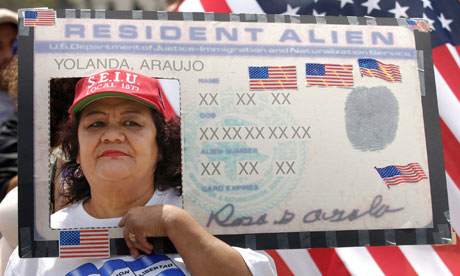 Rosa Ayala, an El Salvador native who has lived in Los Angeles for 27 years, pokes out from her sign before an immigration rally in Los Angeles, May 1, 2006. Photograph: Chris Pizzello/Reuters
Rosa Ayala, an El Salvador native who has lived in Los Angeles for 27 years, pokes out from her sign before an immigration rally in Los Angeles, May 1, 2006. Photograph: Chris Pizzello/Reuters
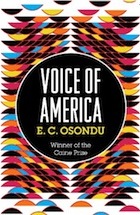



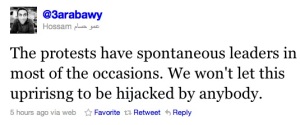
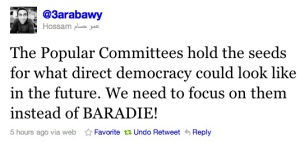

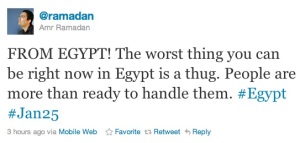
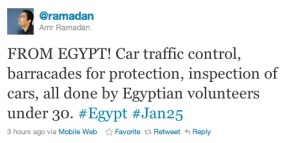
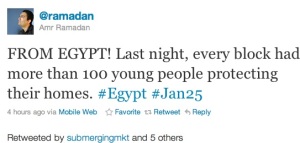

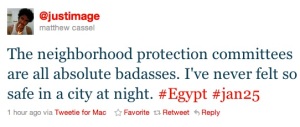


 This post also available in:
This post also available in:
